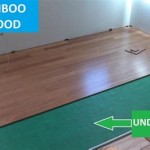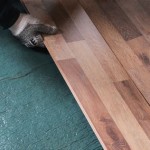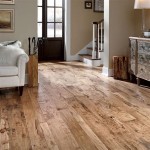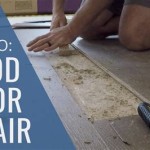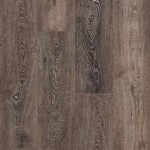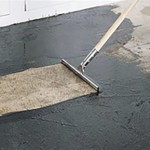What Is The Safest Flooring For Stairs?
Stair safety is a paramount concern in any home. Choosing the right flooring material can significantly reduce the risk of slips and falls, especially for children and the elderly. Various factors contribute to stair safety, including the material's slip resistance, durability, and proper installation. This article explores several flooring options, highlighting their safety features and potential drawbacks to help homeowners make informed decisions.
Carpet
Carpet is a popular choice for stairs due to its inherent cushioning and slip resistance. The textured surface provides good traction, reducing the likelihood of slips. Carpet also offers a degree of sound absorption, minimizing noise from foot traffic. However, carpet can be challenging to clean, especially on high-traffic staircases. Dust, dirt, and allergens can accumulate within the fibers, requiring regular vacuuming and occasional deep cleaning. The pile height of the carpet is a crucial consideration; a low, dense pile is generally recommended for stairs to minimize tripping hazards.
Choosing the right carpet padding can further enhance safety and comfort. A dense pad provides additional cushioning and support, reducing the impact on joints during ascents and descents. It’s essential to ensure the padding is securely attached to the stairs to prevent shifting and bunching, which could create a tripping hazard. Regularly inspecting and replacing worn or damaged carpet and padding is crucial for maintaining optimal safety.
Hardwood
Hardwood flooring offers a classic, elegant look, but its smooth surface can pose a slip hazard on stairs. While visually appealing, hardwood lacks the inherent slip resistance of carpet. To mitigate this, homeowners can install non-slip treads or runners on hardwood stairs. These additions provide increased traction and can be aesthetically coordinated with the surrounding décor. Regular cleaning is essential to remove dust and debris that can further reduce traction.
The finish applied to hardwood flooring also affects its slip resistance. A high-gloss finish can be particularly slippery, while a matte or satin finish offers better grip. When choosing a hardwood finish for stairs, opting for a less glossy option is advisable. Additionally, ensuring proper lighting on staircases can improve visibility and reduce the risk of accidents.
Vinyl Flooring
Vinyl flooring is a versatile option available in various styles, including planks, tiles, and sheet vinyl. Luxury vinyl plank (LVP) and luxury vinyl tile (LVT) are increasingly popular choices for stairs due to their durability and ease of maintenance. Textured vinyl flooring options offer better slip resistance than smooth varieties. Some vinyl flooring products are specifically designed with enhanced grip for stair applications.
Similar to hardwood, smooth vinyl flooring can be slippery, especially when wet. Using non-slip treads or runners can significantly enhance safety. Regular cleaning is also crucial for maintaining traction and preventing the buildup of dirt and grime. When choosing vinyl flooring for stairs, consider textured options designed for high-traffic areas to maximize safety and longevity.
Tile
Tile flooring, like hardwood, can be visually appealing but presents a slip hazard on stairs. Its hard, smooth surface offers minimal traction, particularly when wet. While certain tile types, such as textured porcelain or ceramic, provide slightly more grip than others, they still require additional safety measures. Non-slip treads or runners are highly recommended for tiled stairs to enhance traction and reduce the risk of falls.
Proper installation is critical for tile flooring on stairs. Uneven tiles can create tripping hazards, while loose tiles can pose a significant safety risk. Ensuring a level and secure installation is paramount for maximizing the safety of tiled stairs. Regular cleaning and maintenance are also essential to remove any debris or moisture that could compromise traction.
Laminate Flooring
Laminate flooring offers a cost-effective alternative to hardwood, but it can also be slippery on stairs. While textured laminate options provide some degree of grip, they are generally not as slip-resistant as carpet or textured vinyl. Using non-slip treads or runners is advisable to enhance traction on laminate stairs. Regular cleaning is necessary to remove dust and debris that can contribute to slips.
The quality of the laminate flooring can also impact its safety performance. Higher-quality laminate products often feature enhanced slip-resistant surfaces and more durable construction, which can contribute to improved safety on stairs. Consider opting for textured laminate options specifically designed for high-traffic areas to maximize both safety and longevity.

What Is The Best Type Of Flooring For Stairs

The Best Flooring Options For Stairs Explained Carpet Guys

Best Flooring Options For Stairs Parrys Carpets

7 Best Flooring Ideas For Stairways

Types Of Flooring For Stairs All American

What Is The Best Laminate Flooring For Stairs Full Guide Teka

Best Flooring For Stairs And Landing A Comprehensive Guide Wood Beyond Blog

Flooring For Stairs What Is The Best Fit And Design

Flooring For Stairs Choosing The Best Option Your Home

What S The Best Flooring For Stairs
See Also
